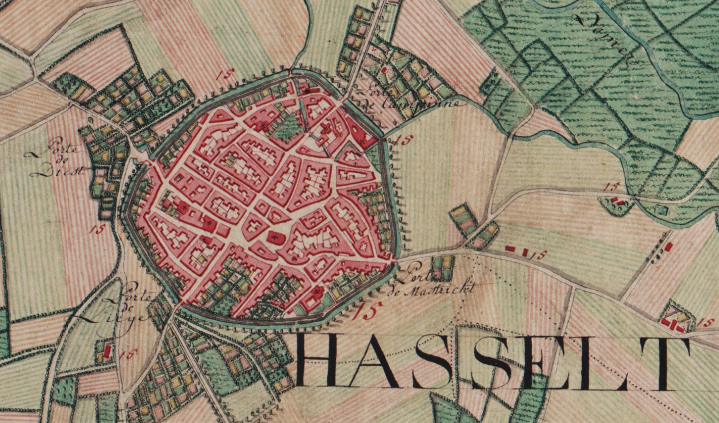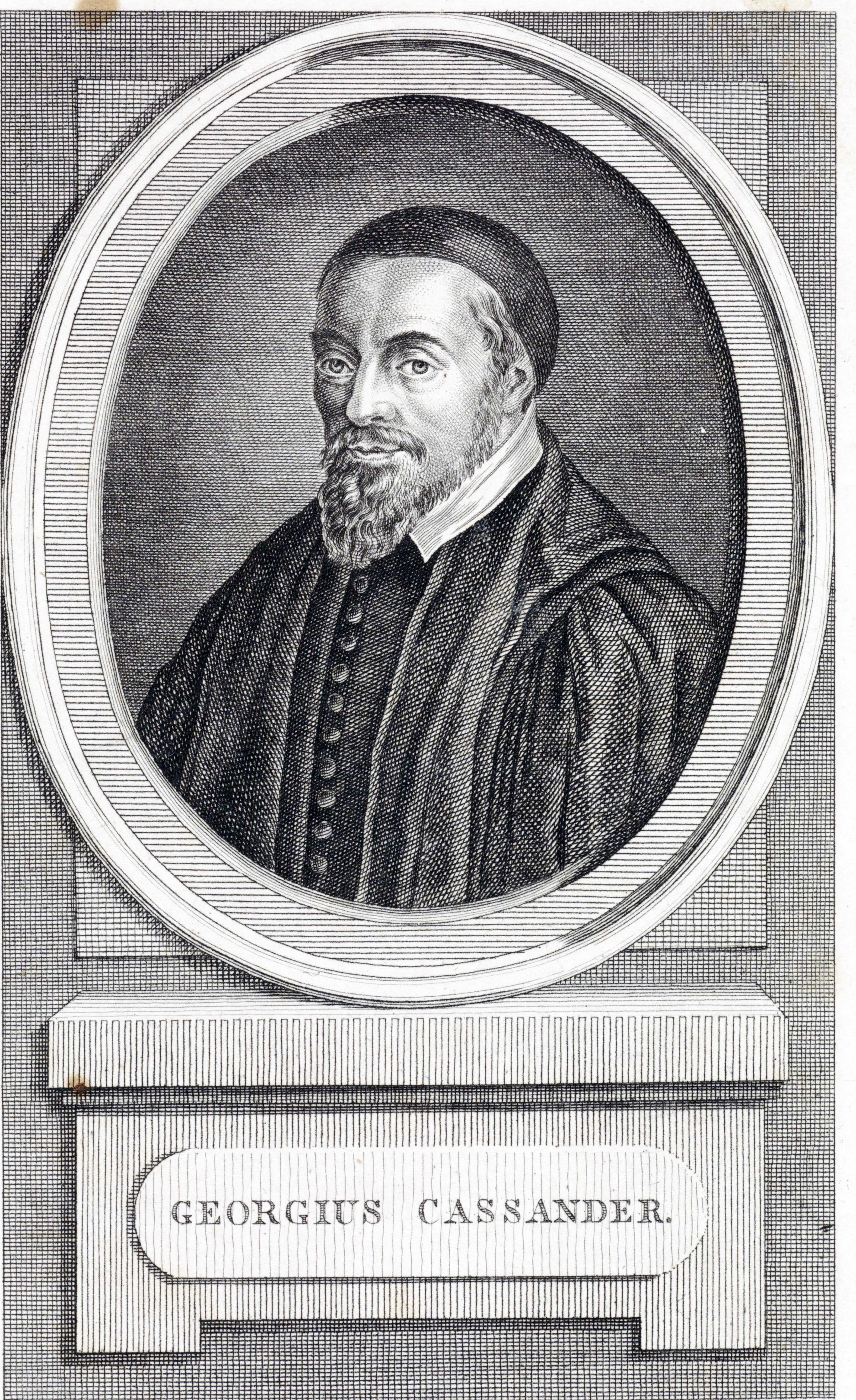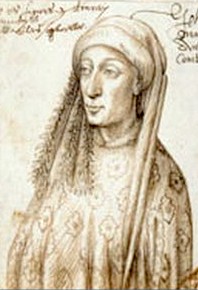|
Jean Hessels
Jan Hessels, Jean Leonardi Hasselius or Jean Hessels (Hasselt, 1522 – 1566) was a Flemish theologian and controversialist at the University of Louvain. He was a defender of Baianism. Life Hessels was born at Mechlin in 1522, and obtained his doctorate in theology from Louvain. He had been teaching for eight years in Park Abbey, the Premonstratensian house near Louvain, when in 1560, he was appointed professor of theology at the university. Like Michael Baius, who was his senior colleague, Hessels preferred drawing his theology from the Church Fathers, especially from Augustine of Hippo, rather than from the Schoolmen. While Chancellor Ruard Tapper and Josse Ravesteyn, Professor of Theology were at the Council of Trent, Baius and Hessels took the occasion to introduce new methods and new doctrines. Not content, however, with a mere change of method they began to show their contempt for traditional opinions, and in a short time alarming rumours were in circulation both inside and o ... [...More Info...] [...Related Items...] OR: [Wikipedia] [Google] [Baidu] |
Hasselt
Hasselt (, , ; la, Hasseletum, Hasselatum) is a Belgian city and municipality, and capital and largest city of the province of Limburg in the Flemish Region of Belgium. It is known for its former branding as "the city of taste", as well as its local distelleries of Hasselt jenever (gin), the Hasselt Jenever Festivities, Limburgish pie and the Hasselt speculaas. The municipality includes the original city of Hasselt, plus the boroughs of Sint-Lambrechts-Herk, Wimmertingen, Kermt, Spalbeek, Kuringen, Stokrooie, Stevoort and Runkst, as well as the hamlets and parishes of Kiewit, Godsheide and Rapertingen. On 01 July 2022 Hasselt had a total population of 80,260 (39,288 men and 40,972 women). Both the Demer river and the Albert Canal run through the municipality. Hasselt is located in between the Campine region, north of the Demer river, and the Hesbaye region, to the south. On a larger scale, it is also situated in the Meuse-Rhine Euroregion. History Hasselt was founded in a ... [...More Info...] [...Related Items...] OR: [Wikipedia] [Google] [Baidu] |
Antoine Perrenot De Granvelle
Antoine Perrenot de Granvelle (20 August 151721 September 1586), Comte de La Baume Saint Amour, was a Bisontin ( Free Imperial City of Besançon) statesman, made a cardinal, who followed his father as a leading minister of the Spanish Habsburgs, and was one of the most influential European politicians during the time which immediately followed the appearance of Protestantism in Europe; "the dominating Imperial statesman of the whole century".Trevor-Roper, Hugh; ''Princes and Artists, Patronage and Ideology at Four Habsburg Courts 1517–1633'', Thames & Hudson, London, 1976, p. 112 He was also a notable art collector, the "greatest private collector of his time, the friend and patron of Titian and Leoni and many other artists". Biography He was born in the Free Imperial City of Besançon, now in France, then a self-governing city surrounded by the Imperial territory of the County of Burgundy ( Franche-Comté). His father, Nicholas Perrenot de Granvelle (1484–1550), a ... [...More Info...] [...Related Items...] OR: [Wikipedia] [Google] [Baidu] |
1566 Deaths
__NOTOC__ Year 1566 ( MDLXVI) was a common year starting on Tuesday (link will display the full calendar) of the Julian calendar. Events January–June * January 7 – Pope Pius V succeeds Pope Pius IV, as the 225th pope. * February 24 – In one of the first gun assassinations in Japanese (if not world) history, Mimura Iechika is shot dead by two brothers (Endo Matajiro and Yoshijiro), sent by his rival Ukita Naoie. * March 28 – The foundation stone of Valletta, which will become Malta's capital city, is laid by Jean Parisot de Valette, Grand Master of the Sovereign Military Order of Malta. * April 5 – The Compromise of Nobles is presented to Margaret of Parma, Governor of the Habsburg Netherlands, but it succeeds only in delaying the beginning of the Eighty Years' War in the Netherlands. July–December * August 6 – The siege of Szigetvár is begun by Suleiman the Magnificent, Sultan of the Ottoman Empire. This is the Ottoman Empi ... [...More Info...] [...Related Items...] OR: [Wikipedia] [Google] [Baidu] |
1522 Births
Fifteen or 15 may refer to: *15 (number), the natural number following 14 and preceding 16 *one of the years 15 BC, AD 15, 1915, 2015 Music *Fifteen (band), a punk rock band Albums * ''15'' (Buckcherry album), 2005 * ''15'' (Ani Lorak album), 2007 * ''15'' (Phatfish album), 2008 * ''15'' (mixtape), a 2018 mixtape by Bhad Bhabie * ''Fifteen'' (Green River Ordinance album), 2016 * ''Fifteen'' (The Wailin' Jennys album), 2017 * ''Fifteen'', a 2012 album by Colin James Songs * "Fifteen" (song), a 2008 song by Taylor Swift *"Fifteen", a song by Harry Belafonte from the album '' Love Is a Gentle Thing'' *"15", a song by Rilo Kiley from the album ''Under the Blacklight'' *"15", a song by Marilyn Manson from the album ''The High End of Low'' *"The 15th", a 1979 song by Wire Other uses *Fifteen, Ohio, a community in the United States * ''15'' (film), a 2003 Singaporean film * ''Fifteen'' (TV series), international release name of ''Hillside'', a Canadian-American teen drama *Fi ... [...More Info...] [...Related Items...] OR: [Wikipedia] [Google] [Baidu] |
Immaculate Conception
The Immaculate Conception is the belief that the Virgin Mary was free of original sin from the moment of her conception. It is one of the four Marian dogmas of the Catholic Church, meaning that it is held to be a divinely revealed truth whose denial is heresy. Debated by medieval theologians, it was not defined as a dogma until 1854, by Pope Pius IX in the papal bull ''Ineffabilis Deus'', which states that Mary, through God's grace, was conceived free from the stain of original sin through her role as the Mother of God: We declare, pronounce, and define that the doctrine which holds that the most Blessed Virgin Mary, in the first instance of her conception, by a singular grace and privilege granted by Almighty God, in view of the merits of Jesus Christ, the Saviour of the human race, was preserved free from all stain of original sin, is a doctrine revealed by God and therefore to be believed firmly and constantly by all the faithful. While the Immaculate Conception ass ... [...More Info...] [...Related Items...] OR: [Wikipedia] [Google] [Baidu] |
Jonathan Irvine Israel
Jonathan Irvine Israel (born 26 January 1946) is a British writer and academic specialising in Dutch history, the Age of Enlightenment and European Jews. Israel was appointed as Andrew W. Mellon Professor in the School of Historical Studies at the Institute for Advanced Study, Princeton, New Jersey, in January 2001 and retired in July 2016. He was previously Professor of Dutch History and Institutions at the University College London. In recent years, Israel has focused his attention on a multi-volume history of the Age of Enlightenment. He contrasts two camps. The "radical Enlightenment" was founded on a rationalist materialism first articulated by Spinoza. Standing in opposition was a "moderate Enlightenment" which he sees as weakened by its belief in God. Life Israel's career until 2001 unfolded in British academia. He attended Kilburn Grammar School, and like his school peer and future fellow historian Robert Wistrich went on to study History as an undergraduate at Que ... [...More Info...] [...Related Items...] OR: [Wikipedia] [Google] [Baidu] |
Georgius Cassander
George Cassander (or Cassant) (1513 – 3 February 1566) was a Flemish Catholic theologian and humanist. Life Born at Pittem near Bruges, he went at an early age to Leuven, where he was graduated in 1533. In 1541 he was appointed professor of belles-lettres at Bruges, but resigned two years later, partly from a natural desire to travel for instruction, and partly in consequence of the opposition aroused by his pro-Reformation views.Weber, Nicholas. "George Cassander." The Catholic Encyclopedia Vol. 3. New York: Robert Appleton Company, 1908. 27 January 2021 On his journeys, which were undertaken in the company, and at the expense of his friend, Cornelius Wouters, he visited Rome, and in 1544 came to Cologne, where he settled permanently in the summer of 1549. He soon abandoned the classics for ... [...More Info...] [...Related Items...] OR: [Wikipedia] [Google] [Baidu] |
Papal Infallibility
Papal infallibility is a dogma of the Catholic Church which states that, in virtue of the promise of Jesus to Peter, the Pope when he speaks ''ex cathedra'' is preserved from the possibility of error on doctrine "initially given to the apostolic Church and handed down in Scripture and tradition". It does not mean that the pope cannot sin or otherwise err in most situations. This doctrine, defined dogmatically at the First Vatican Council of 1869–1870 in the document ''Pastor aeternus'', is claimed to have existed in medieval theology and to have been the majority opinion at the time of the Counter-Reformation. The doctrine of infallibility relies on one of the cornerstones of Catholic dogma, that of papal supremacy, whereby the authority of the pope is the ruling agent as to what are accepted as formal beliefs in the Catholic Church. The use of this power is referred to as speaking ''ex cathedra''. "Any doctrine 'of faith or morals' issued by the pope in his capacity as ... [...More Info...] [...Related Items...] OR: [Wikipedia] [Google] [Baidu] |
Cornelius Jansen (Bishop Of Ghent)
Cornelius Jansen, the Elder (; 1510, Hulst – 11 April 1576, Ghent) was a Catholic exegete and the first Bishop of Ghent. According to M.A. Screech, Jansen is considered by many to be the most outstanding Roman Catholic biblical scholar of his age. Life He received his early education at Ghent from the Brethren of the Common Life (called at Ghent the Hieronymites), and later studied theology and Oriental languages at Leuven. He was a good Greek scholar. After he had become a licentiate of theology in 1534, at the request of the abbot of the Premonstratensian Abbey of Tongerloo, he lectured on the Holy Scripture, to the young monks until 1542, from which date until 1562 he discharged the duties of pastor of the parish of St. Martin at Kortrijk. Having finally attained the degree of Doctor of Theology in 1562, he was immediately appointed professor of theology at the Old University of Leuven, became in the following year dean of the collegiate seminary of St. James, and attended th ... [...More Info...] [...Related Items...] OR: [Wikipedia] [Google] [Baidu] |
Josse Ravesteyn
Josse Ravesteyn, also spelled Ravestein (ca. 1506–1570), was a Flemish Roman Catholic theologian. Biography Born about 1506, at Tielt, a small town in Flanders, hence often called ''Tiletanus (Jodacus)''). He studied philosophy at the Collège du Lys, in the Old University of Leuven, University of Leuven, and in 1525 graduated fourth. He was appointed to teach philosophy in the same college, where he continued his course of theology, under the professors, Ruard Tapper and Jean Hessels, Jan Hessels (also known as Jean Leonardi Hasselius). From 1540 to 1553 he was president of the College of Houterle, and associated with the Abbé de Ste-Gertrude as guardian of the privileges of the university. In 1546 he became ordinary professor in the theological faculty and canon of the first rank in the collegiate chapter of St-Pierre. He was then only a licentiate in theology, but received the doctorate on 5 October following. On the recommendation of Holy Roman Emperor Charles V, Holy Ro ... [...More Info...] [...Related Items...] OR: [Wikipedia] [Google] [Baidu] |
Old University Of Leuven
The Old University of Leuven (or of Louvain) is the name historians give to the university, or ''studium generale'', founded in Leuven, Brabant (then part of the Burgundian Netherlands, now part of Belgium), in 1425. The university was closed in 1797, a week after the cession to the French Republic of the Austrian Netherlands and the principality of Liège (jointly the future Belgium) by the Treaty of Campo Formio. The name was in medieval Latin Studium generale Lovaniense or Universitas Studii Lovaniensis, in humanistical Latin Academia Lovaniensis, and most usually, Universitas Lovaniensis, in Dutch Universiteyt Loven and also Hooge School van Loven. It is commonly referred to as the University of Leuven or University of Louvain, sometimes with the qualification "old" to distinguish it from the Catholic University of Leuven (established 1835 in Leuven). This might also refer to a short-lived but historically important State University of Leuven, 1817–1835. The immedi ... [...More Info...] [...Related Items...] OR: [Wikipedia] [Google] [Baidu] |
Ruard Tapper
Ruard Tapper (15 February 1487 – 2 March 1559) was a Dutch theologian of the Catholic Reformation, a chancellor of Leuven University, and an inquisitor. Life Tapper was born at Enkhuizen, County of Holland, on 15 February 1487. He matriculated at Leuven University on 11 June 1503, and graduated M.A. in 1507, placing second highest in his year. Henri De Vocht, "Tapper (Ruard)", ''Biographie Nationale de Belgique''vol. 24(Brussels, 1929), 555-577. While studying Theology he taught physics and logic, and in 1511 sat on the university council on behalf of the Faculty of Arts. In 1517 he served as dean of the Faculty of Arts. He was ordained to the priesthood in 1515, and graduated Licentiate of Sacred Theology on 3 June 1516 and Doctor of Sacred Theology on 16 August 1519. On 7 November 1519 he was involved in the Faculty of Theology's condemnation of a number of propositions drawn from the writings of Martin Luther. On 21 November 1519 Tapper succeeded Martinus Dorpius as presid ... [...More Info...] [...Related Items...] OR: [Wikipedia] [Google] [Baidu] |





.jpg)
